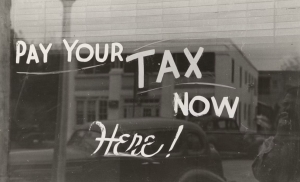Debt Collection Pre- and Post-Christmas: Best Practices and Key Steps
The festive season is a time for joy and giving, but for many businesses, it also presents challenges with cash flow as customers struggle to settle their accounts. Managing overdue debts effectively during and after the Christmas period is critical for maintaining financial stability. What are the best practices for handling overdue debts, responding to excuses, and escalating action when necessary under New Zealand law?
1. Proactive Debt Management: The Pre-Holiday Checklist
Communication Is Key:
Pre-emptive Reminders: Send reminders about due invoices early in December, emphasizing the importance of payment before the holiday break.
Flexible Arrangements: Offer payment plans or early settlement discounts to encourage compliance.
Assess Your Accounts Receivable:
Prioritize high-value debts and long-overdue accounts for immediate follow-up.
Conduct credit checks on customers with large outstanding balances to gauge the risk of non-payment.
2. Handling Overdue Debts: Strategies and Excuses
Common Excuses and Responses:
“We’re waiting on payments ourselves.” - Suggest a part-payment option to reduce the balance and demonstrate goodwill.
“Our accounts team is on holiday.” - Request payment before their break or arrange for automated transfers.
“Cash flow is tight after Christmas.” - Propose a manageable payment schedule to ease the strain.
Best Practices for Follow-Up:
Maintain regular contact via phone and email.
Keep all communication professional and documented for future reference.
Consider involving a third-party debt collector if the debtor becomes unresponsive.
3. Taking Action: When to Escalate for Default
Warning Signs for Escalation:
Repeated failure to adhere to agreed payment terms.
Non-responsiveness to communication efforts.
Debtor denies liability without substantiation.
Steps for Debt Collection:
Send a Formal Demand Letter: Clearly state the overdue amount, due date, and consequences of non-payment.
Engage a Debt Collection Agency: If the debtor remains unresponsive, a collection agency can add pressure and negotiate on your behalf.
Legal Action Under the Companies Act 1993: If the debtor is a company, a statutory demand can be issued for debts over $1,000.
Issuing a Statutory Demand:
This formal notice requires payment within 15 working days.
Non-compliance allows you to apply to the High Court to liquidate the company.
Winding Up Proceedings: If granted, a liquidator is appointed and generally the company’s assets will be sold to pay creditors.
This is a last resort and should be approached with legal advice and/or by consulting an insolvency practitioner to ensure compliance with procedural requirements.
4. Post-Holiday Recovery Plan
Reassess Credit Policies: Tighten credit terms for new customers or those with a history of late payments.
Monitor Trends: Track payment patterns over time to identify seasonal risks and adjust your strategies accordingly.
Engage Professional Help Early: If payment disputes arise, consult legal professionals to mitigate risks and recover debts efficiently.
Final Thoughts
Managing overdue debts around the Christmas period requires a blend of empathy, strategy, and assertiveness. By acting promptly and adhering to best practices, businesses can safeguard cash flow and reduce the impact of defaults.
Remember, the key is to remain proactive, professional, and prepared to escalate when necessary to protect your interests. For complex cases or substantial debts, seek guidance from an insolvency practitioner, a debt recovery expert or lawyer experienced in insolvency law. We are here to help www.mvp.co.nz
Navigating the Impact of Company Liquidation on Directors' Credit Ratings
Company liquidation can have significant ramifications not only for the business itself but also for its directors, particularly concerning their credit ratings and overall financial standing. When a company faces insolvency and enters into liquidation, directors may find themselves confronted with various challenges and consequences that extend beyond the dissolution of the company. In this article, we explore the impact of company liquidation on directors' credit ratings, the broader implications of association with an insolvent company, and strategies directors can employ to mitigate the effects.
Impact on Directors' Credit Ratings:
One of the immediate concerns for directors following company liquidation is the potential impact on their personal credit ratings. While company liquidation itself does not directly affect directors' credit scores since company and director are separate legal entities, it can indirectly influence their creditworthiness in several ways:
Personal Guarantees: Directors who have provided personal guarantees for company debts may see their credit ratings impacted if they fail to fulfil these obligations following liquidation. Defaulting on personal guarantees can result in negative entries on directors' credit reports and lower credit scores.
Credit Applications: Directors associated with a company that has undergone liquidation may encounter increased scrutiny when applying for personal credit, such as loans or mortgages. Lenders may view past involvement with a failed business as a risk factor, potentially affecting directors' ability to secure credit on favourable terms.
Creditworthiness Assessment: Creditors and financial institutions may consider directors' involvement in a liquidated company as part of their overall creditworthiness assessment. Past insolvency proceedings may raise concerns about directors' financial management skills and reliability as borrowers.
Other Impacts of Insolvent Liquidation Association:
Beyond credit ratings, directors associated with a company that has faced insolvent liquidation may experience various other consequences:
Reputation Damage: Involvement in a failed business can tarnish directors' professional reputations and credibility within their industry. Negative perceptions of past business failures may impact directors' ability to secure future employment or business opportunities.
Legal Obligations: Directors have legal duties and obligations under New Zealand's Companies Act 1993, including responsibilities during the liquidation process. Failure to fulfil these duties may result in legal liabilities and potential disqualification from serving as company directors in the future.
Personal Financial Loss: Directors may face personal financial losses resulting from liabilities incurred during the operation of the insolvent company, such as unpaid debts, legal claims, or liquidation expenses.
Duration of Insolvency Status on Debt Collection Agency Registers:
The duration for which insolvency status remains on debt collection agency registers can vary depending on several factors, including the type of insolvency procedure and the policies of individual credit reporting agencies. Generally, records of insolvency proceedings, such as liquidation or bankruptcy, may remain on credit reports for up to seven years following the date of the event.
Mitigating Strategies for Directors:
While the aftermath of company liquidation can be challenging for directors, there are proactive steps they can take to mitigate the impact on their financial standing and reputation:
Seek Professional Advice: Directors should seek guidance from legal and financial professionals to understand their rights, obligations, and options following company liquidation. Personal guarantees for example can be settled with repayment plans, full and final settlement Deeds, Part 5 subpart 2 proposals.
Rebuild Creditworthiness: Directors can take steps to rebuild their creditworthiness over time by demonstrating responsible financial management, maintaining a positive payment history, and addressing any outstanding debts or obligations.
Focus on Personal Development: Directors can use the experience of company liquidation as an opportunity for personal and professional growth. Investing in education, training, and skills development can enhance directors' capabilities and strengthen their prospects in the job market or entrepreneurship.
Transparent Disclosure: When applying for new business ventures or financial products, directors should be transparent about their past involvement with a liquidated company. Providing context and explanations for past business failures can help mitigate concerns and build trust with stakeholders.
In conclusion, directors facing company liquidation must navigate various challenges, including potential impacts on their credit ratings, reputation, and financial standing. By understanding the implications of insolvency, seeking professional advice, and adopting proactive strategies, directors can mitigate the effects of liquidation and position themselves for future success in their personal and professional endeavours.
To discuss This email address is being protected from spambots. You need JavaScript enabled to view it..
Arrears with Inland Revenue and Insolvency
Many NZ companies are currently affected by cash flow issues and are facing insolvency. To be insolvent means one of two things:
- Debts can’t be paid when they’re due.
- Total debt is more than the value of all assets.
The Commissioner of Inland Revenue ("CIR") will take debt recovery action where debts are in arrears. The CIR is able to issue a statutory demand as a step necessary to advance a proceeding against a company.
Ignorance Isn't Bliss
It is recommended for any business struggling to meet tax arrears that negotiations are entered into promptly to avoid a potential winding up proceeding.
Taxpayers are required to pay their tax in full and on time. Failure to do so leads to late payment penalties and interest. These charges compensate the Commissioner for the loss of use of the money and act as a deterrent to encourage taxpayers to pay the correct amount of tax on time.
If your company receives an IRD formal demand, doing nothing really isn’t an option. Inaction will limit your options and virtually guarantees insolvency. You can also be held personally liable for failing to pay PAYE.
In certain situations the Commissioner may be able to provide assistance to taxpayers if they are not able to pay on time, or if the imposition of penalties and/or interest is not appropriate. Depending on the circumstances the Commissioner may also agree to write off or remit amounts owing (so they do not need to be paid), or agree that the taxpayer enters into an instalment arrangement (so the amount is paid over time rather than immediately).
The IRD seek open communication and are more willing to consider instalment arrangements when directors have been upfront from the start. Company directors that bury their heads in the sand and have no plans in place may face less leniency and liquidation proceedings.
The IRD can find directors liable for their company’s tax under general insolvency law. The law also says if a company agreement purposefully leaves it unable to pay a foreseeable tax liability, a director can be personally liable.
In the first instance the IRD will try for a settlement. This is your chance to negotiate terms and arrive at a compromise that allows you to stay in business while the IRD claims their tax. If you can reach a repayment agreement, the IRD won’t take the matter further.
If you’re unable to reach a compromise, the IRD will issue a formal demand, followed by a statutory demand and then issue an application for putting the company into liquidation (winding up proceeding) if you don’t settle the demand. If you do nothing the company will be placed into liquidation by the High Court.
The first step is to make contact, complete a 12 month forecast (IR591) recording what you can afford to pay and discuss the options.
Relief Options
The IRD offer relief options for companies with viable businesses.
Financial relief can be granted when a taxpayer cannot meet their payment obligations. The process to apply for financial relief or an instalment option is here.
The Commissioner is open to instalment arrangements towards tax arrears. Splitting up what you owe over weekly or fortnightly payments can make it easier to repay your tax debt.
The CIR may agree to collect the amounts owing over a period of time through an instalment arrangement, or to not collect the amount owing (that is, write off the amount), or a combination of the two options (that is, write off some of the debt and enter into an instalment arrangement for the remainder). An amount may be written off if collecting it would place the taxpayer in “serious hardship”.
Where an amount is considered irrecoverable, the Commissioner has the discretion to write it off. The Commissioner may write off amounts if collecting the amounts owing is considered to be an inefficient use of Inland Revenue’s resources.
Certain penalties may be remitted when an event or circumstance has occurred which is beyond the taxpayer’s control.
Interest or certain penalties may be remitted if to do so is consistent with the Commissioner’s duty to collect the highest net revenue over time.
Voluntary Liquidation
One possibility for meeting the IRD formal demand is voluntary liquidation. This gives the director and shareholders a small element of control over liquidation proceedings. If liquidation is inevitable then the opportunity to voluntarily appoint a liquidator is usually required within 10 working days of the winding up proceeding being served so acting promptly following the statutory demand (or earlier) is advised. Waiting until the service of the winding up proceeding is not a good idea and limits your options.
If you do nothing or you can’t reach a settlement, the IRD can apply for their preferred liquidator or Official Assignee and manage your affairs and liquidate your company. In this instance the Court will appoint the IRD’s liquidator. As company director you have less control over the process and must cooperate with the Court appointed liquidator or Official Assignee at all times.
Deciding between involuntary and voluntary liquidation may not seem like much of a choice. Appointing a licensed insolvency practitioner that you believe understands you, your business and your industry, and who can consider your interests while satisfying the IRD’s demands provides more certainty of the likely outcomes. For example, with the liquidators approval, you may be able to be involved to help achieve better outcomes for your creditors and in doing so, you may reduce your own personal exposure from personal guarantees. Your liquidator can apply specialist skills to remove some of the sting from this traumatic process. Acting cooperatively with the liquidator is good advice. If you would like more advice from experienced insolvency practitioners contact our team.
Statutory and formal IRD demands are outside threats to your business. There are just as many risks that can come from within, so how do you protect your business from those?
If your company is experiencing financial difficulty, download our free guide for NZ Companies to discover your different options.
WHAT SHOULD YOU BE CONSIDERING NOW?
- Consider the risks of trading insolvently and how directors can be held personally liable.
- Negotiate an instalment plan with IRD for historic arrears and have a plan in place. The Inland Revenue have pressure to maximise the recovery for the Commissioner under the Tax Administration Act. They are willing to work with companies that communicate early on and this can save further interest/penalties.
- Assess the viability of the business and its future. Prepare a cashflow forecast.
- Where cashflow is an issue, consider compromises with creditors leading to some debt forgiveness and time payment arrangements or voluntary administration.
If the company has lost too much and the prospects are that the company has minimal ability to repay creditors nor has a financial source to fall back on to offer a better position than what liquidation holds, then liquidation sooner may be the better option. Continuing to trade with knowledge of insolvency is a risk for the directors.
WE ARE HERE TO HELP
Our team are happy to discuss the options available for struggling companies and how to manage personal guarantees and personal exposure. Contact This email address is being protected from spambots. You need JavaScript enabled to view it.
If your company needs some advice on the restructuring options or is likely facing the prospect of liquidation, we are happy to advise on the process and consequences.
Safeguarding your interests in Debt Collection
When a customer communicates delays in raising finance that is affecting payment, it's important to handle the situation with understanding while safeguarding your interests. Here's a comprehensive approach:
- Acknowledge and Understand: Express understanding for their situation and emphasize the importance of resolving the outstanding payment. Encourage open communication to gain insights into the delay's specifics.
- Set Clear Expectations: While being empathetic, clearly communicate the importance of timely payment and the impact the delay may have on your business. Request a specific timeline or updates regarding the finance application's progress.
- Alternatives and Solutions: Explore alternative payment options or negotiate a temporary solution. This might include accepting partial payments, offering an extended grace period, or restructuring the payment schedule to accommodate their financial situation.
- Ensuring Security for Payment:
- Registering a Security Interest: Consider registering a security interest under the Personal Property Securities Act (PPSA). This can provide a level of security over the goods or assets sold on credit until the payment is made (this is subject to consent).
- PMSI and GSA: If feasible based on the trading terms, evaluate the possibility of Purchase Money Security Interest (PMSI) or General Security Agreements (GSA). These legal mechanisms provide security over assets and future property, ensuring some protection in case of default.
- Collateral or Guarantees: Request collateral or guarantees, such as property, inventory, or personal guarantees, to secure the debt until the finance application is approved and payment is made.
- Regular Communication and Review: Maintain consistent communication to monitor progress. If the delays persist without a concrete timeline or assurance of payment, consider reassessing the situation and taking further actions to protect your interests. If there is concern the customer's company is insolvent and the debt is not disputed, consider a statutory demand. If the debt is disputed seek legal advice or contact a licensed insolvency practitioner to discuss your options. If a formal demand/statutory demand does not gain payment or a form of security for payment or a compromise agreement towards payment then a winding up proceeding leading to a formal liquidation to recover your debt may be an option.
- Assessing 'Enough is Enough': Evaluate the situation objectively. If the delays persist for an extended period with no clear resolution or communication from the customer, and it starts significantly impacting your business, it may be necessary to consider legal action or debt collection processes to recover the outstanding debt. This may lead to consulting an insolvency practitioner.
Remember, each situation is unique, and finding a balance between empathy and safeguarding your business interests is crucial. Engage in open dialogue, explore alternatives, and ensure compliance with legal requirements to secure the owed payment while maintaining professionalism and goodwill in your interactions. If you would like to discuss this further contact one of our team.
Considerations When Accepting a Debt Repayment Arrangement
Accepting an informal instalment arrangement for a debt that is owing to you instead of being paid on trade terms is not obligatory, giving you the discretion to evaluate the situation before making a decision. However, it's crucial to assess both the potential advantages and the associated risks.
If a debt is owing and not being paid there are common courses of action such as negotiating an agreeable solution and instalment plan, issuing a statutory demand, enforcing a judgment, engaging a debt collection agent, mediation, caveats (where there is a caveatable interest), lodging a report with credit agencies etc.
There are benefits and risks to most options. We discuss the informal arrangements here.
Risks of Accepting an informal Instalment Arrangement:
1. Delayed Payment: Opting for an instalment plan may result in a prolonged period before you receive the full amount owed, potentially affecting your own financial commitments. However if presented under a Companies Compromise this may provide a greater return than otherwise available.
2. Default Risk and Clawback Concerns: There is a risk of the debtor defaulting on the instalment plan. Additionally, in cases of insolvency and subsequent liquidation, there could be a risk of voidable transactions and clawback of payments made, potentially leading to partial or complete loss of the debt repayment.
3. Risk of Insolvent Transactions and Clawback: In cases where an insolvent company enters into an informal repayment arrangement, there is a significant risk of such an arrangement being deemed an insolvent transaction unless there are clear defences. This could lead to a legal challenge and potential clawback of payments already made to you. In such instances, you may face the prospect of having to return these funds, leaving you with a reduced or nullified debt repayment.
4. Interest and Penalties: Depending on the agreed-upon terms, interest or penalties may be associated with late payments.
5. Potential Financial Struggles: If the debtor's financial situation deteriorates further, they may face difficulties in adhering to the agreed-upon payment schedule.
Mitigating the Risks:
1. Clear and Comprehensive Agreement: Ensure that the terms of the instalment plan are thoroughly detailed, covering the total amount owed, payment frequency, and any applicable interest or penalties.
2. Document Everything: Maintain meticulous records of all correspondence, agreements, and payments related to the instalment plan. This documentation will be crucial in case of any disputes.
3. Collateral or Security: Whenever possible, request collateral or some form of security to secure the debt. This provides an additional layer of protection in case of default or a potential clawback following insolvency.
4. Vigilant Payment Monitoring: Keep a close watch on the debtor's payments to verify that they are meeting their obligations as agreed.
5. Legal Counsel: Seek legal advice or the advice of a Licensed Insolvency Practitioner to review and assist in drafting the instalment agreement. Legal guidance can help safeguard your interests.
6. Contingency Plans: Consider the steps you would take if the debtor defaults on the instalment plan. This could involve legal action or exploring alternative collection methods.
Instalment Plan Binding Following Insolvency Proceedings:
If the debtor has undergone an approved voluntary administration or entered into a company compromise under the Companies Act 1993, the terms of any instalment plan may be legally binding. This is subject to the specific terms and conditions outlined in the approved arrangement.
A company compromise should be seriously considered when offered by a company facing the risk of insolvency where that business is viable. The compromise may provide some relief but it ensures continued trade, employment for staff and a better outcome than an immediate liquidation.
It's crucial to consult with a legal professional who specializes in insolvency matters or a Licensed Insolvency Practitioner to ensure that any instalment plan complies with the legal framework and is enforceable.
If you are convinced the company that is not paying is insolvent then consult our team for advice on how to advance proceedings for putting the company into liquidation.
Remember, every situation is unique, and professional advice tailored to your specific circumstances is essential for making informed decisions regarding debt repayment arrangements.
The risk of not paying your Taxes
The risk of not paying your company taxes to the Inland Revenue Department (IRD) in New Zealand can be significant and may include the following:
-
Penalties and interest: If you do not pay your taxes on time, you may be subject to penalties and interest charges. These charges can quickly add up and significantly increase the amount owed.
-
Legal action: The IRD has the power to take legal action to recover unpaid taxes. This can include issuing a statutory demand, taking court action, or placing a lien on your assets.
-
Business closure: If a business fails to pay its taxes, the IRD may take steps to wind up the business. This can result in the forced sale of assets and the closure of the business.
-
Personal liability: In some cases, company directors and officers may be held personally liable for unpaid company taxes (in particular unpaid PAYE which is Trust money). This can result in personal bankruptcy, legal action, and damage to personal credit ratings.
-
Reputational damage: Failing to pay taxes can damage a business's reputation and make it harder to secure financing, attract customers, or establish partnerships.
In short, not paying company taxes can have serious consequences for both the business and its owners. It's always advisable to ensure that taxes are paid on time and in full to avoid these risks.
If you are in arrears with company taxes to the Inland Revenue Department, there are several options available to you. These include:
-
Payment arrangement: You can negotiate a payment arrangement with the IRD to pay your tax debt over time. This can help you manage your cash flow while also meeting your tax obligations.
-
Late payment penalty remission: The IRD may consider remitting late payment penalties in certain circumstances. This may be available if you have a good compliance history and can demonstrate that the late payment was due to circumstances beyond your control.
-
Debt compromise: In some cases, you may be able to negotiate a debt compromise with the IRD. This involves settling your tax debt for less than the full amount owed. However, debt compromise is not available in all circumstances and is subject to strict criteria.
-
Voluntary disclosure: If you have made a mistake on your tax return or have failed to disclose information to the IRD, you can make a voluntary disclosure. This involves informing the IRD of the error or omission and paying any additional tax owed. Voluntary disclosure may help reduce penalties and interest charges.
-
Insolvency procedures: If you are unable to pay your tax debt and have exhausted other options, you may need to consider insolvency procedures such as liquidation, voluntary administration, or receivership. These options involve winding up the business or placing it under the control of an external party to manage the debt.
It's important to note that the options available to you may depend on your specific circumstances and the amount of tax debt owed. It's always advisable to seek professional advice from an accountant, tax advisor, or licensed insolvency practitioner before taking any action. Send us your enquiry from here.
Resolving Disputed Debts
It’s important to address disputed debt as soon as possible. This will more likely lead to a positive outcome and enable you to rescue your business relationship.
You cannot recover a debt via a statutory demand if the debt is disputed. And, of course, you need cash to continue to operate, so it’s important to find a solution quickly.
Below, we outline the three steps to settling disputed debt:
FIRST: PREVENTING DEBT DISPUTES WITH STRONG IN-HOUSE CREDIT CONTROL AND TERMS OF TRADE
Of course, the best way to minimise disputed debt is to avoid the situation where disputes can arise in the first place. Many disputes can be avoided by good record keeping. Clear terms of trade and customer credit limits that are enforced will go a long way to ensuring you’re never put in a difficult situation again.
Terms of trade should be reviewed periodically (at least once a year) to ensure they’re still meeting your current needs. You may wish to amend your payment terms, default provisions and PPSR guidelines. You might also consider insisting on taking personal guarantees. The ability to register a security in your supplies provides you remedies in the event of failure of your customer.
SECOND: TRY TO REACH AN INFORMAL DEBT SETTLEMENT
Chasing disputed debt through the courts can be a costly process, sometimes far outweighing the benefits of retrieving your money. Dragging a customer through court will also irreparably harm your relationship with them. The best (and usually most cost-effective) solution may be to reach an informal debt settlement or compromise with your customer.
When offering a settlement, consider the customer’s grievance with the debt, as well as their ability to pay. What solution can you offer that ensures both parties come out satisfied?
You may wish to seek advice from a professional firm specialising in business debt settlement, such as McDonald Vague. We can help advise you on a settlement that will ensure the best possible outcome.
THIRD: LEGAL PROCEEDINGS
If you’re not able to reach an agreement about the dispute, your next recourse is to undertake legal proceedings against the debtor. Depending on the amount being contested, you have different options:
Disputes Tribunal: for disputes up to $30,000. Filing fees for the Tribunal are on the low side and both parties represent themselves, making this a cost-effective solution if legal proceedings are required. An order or agreed settlement made by the Tribunal referee is enforced against the debtor in the same way a District Court order would be.
District Court/High Court: The District Court will deal with claims up to $200,000, and any claim higher than this will go through the High Court. Applications for proceedings at these courts are similar, and both require more expert skills, time, and research than the proceedings for the Disputes Tribunal. We recommend you seek out legal advice before issuing proceedings in the District or High Court.
If you are struggling with disputed debts contact us now. This email address is being protected from spambots. You need JavaScript enabled to view it.
IRD Debt Collection – NZ Companies In Financial Distress
Debt collection actions are gaining momentum. Winding up proceedings are on the rise. There is a climb in IRD initiated winding up proceedings.
Many NZ companies have been impacted by Covid-19 and are facing insolvency. To be insolvent means one of two things:
- Debts can’t be paid when they’re due.
- Total debt is more than the value of all assets.
The Commissioner of Inland Revenue has increased debt recovery actions. The CIR is able to issue a statutory demand as a step necessary to advance a proceeding against a company.
Ignorance Isn't Bliss
It is recommended for any business struggling to meet tax arrears that negotiations are entered into promptly to avoid a potential winding up proceeding.
Taxpayers are required to pay their tax in full and on time. Failure to do so leads to late payment penalties and interest. These charges compensate the Commissioner for the loss of use of the money and act as a deterrent to encourage taxpayers to pay the correct amount of tax on time.
If your company receives an IRD formal demand, doing nothing really isn’t an option. Inaction will limit your options and virtually guarantees insolvency. You can also be held personally liable for failing to pay PAYE.
In certain situations the Commissioner may be able to provide assistance to taxpayers if they are not able to pay on time, or if the imposition of penalties and/or interest is not appropriate. Depending on the circumstances the Commissioner may also agree to write off or remit amounts owing (so they do not need to be paid), or agree that the taxpayer enters into an instalment arrangement (so the amount is paid over time rather than immediately).
The IRD seek open communication and are more willing to consider instalment arrangements when directors have been upfront from the start. Company directors that bury their heads in the sand and have no plans in place may face less leniency and liquidation proceedings.
The IRD can find directors liable for their company’s tax under general insolvency law. The law also says if a company agreement purposefully leaves it unable to pay a foreseeable tax liability, a director can be personally liable.
In the first instance the IRD will try for a settlement. This is your chance to negotiate terms and arrive at a compromise that allows you to stay in business while the IRD claims their tax. If you can reach a repayment agreement, the IRD won’t take the matter further.
If you’re unable to reach a compromise, the IRD will issue a formal demand, followed by a statutory demand and then issue an application for putting the company into liquidation (winding up proceeding) if you don’t settle the demand. If you do nothing the company will be placed into liquidation by the High Court.
Relief Options
The IRD offer relief options for companies with viable businesses and have been supportive of businesses that have shown clear impacts of Covid-19 on their business.
Financial relief can be granted when a taxpayer cannot meet their payment obligations. The process to apply for financial relief or an instalment option is here.
The Commissioner is open to instalment arrangements towards tax arrears. Splitting up what you owe over weekly or fortnightly payments can make it easier to repay your tax debt.
The CIR may agree to collect the amounts owing over a period of time through an instalment arrangement, or to not collect the amount owing (that is, write off the amount), or a combination of the two options (that is, write off some of the debt and enter into an instalment arrangement for the remainder). An amount may be written off if collecting it would place the taxpayer in “serious hardship”.
Where an amount is considered irrecoverable, the Commissioner has the discretion to write it off. The Commissioner may write off amounts if collecting the amounts owing is considered to be an inefficient use of Inland Revenue’s resources.
Certain penalties may be remitted when an event or circumstance has occurred which is beyond the taxpayer’s control.
Interest or certain penalties may be remitted if to do so is consistent with the Commissioner’s duty to collect the highest net revenue over time.
Voluntary Liquidation
One possibility for meeting the IRD formal demand is voluntary liquidation. This gives the director and shareholders a small element of control over liquidation proceedings. If liquidation is inevitable then the opportunity to voluntarily appoint a liquidator is usually required within 10 working days of the winding up proceeding being served so acting promptly following the statutory demand (or earlier) is advised.
If you do nothing or you can’t reach a settlement, the IRD can apply for their preferred liquidator or Official Assignee and manage your affairs and liquidate your company. In this instance the Court will appoint the IRD’s liquidator. As company director you have less control over the process and must cooperate with the Court appointed liquidator or Official Assignee at all times.
Deciding between involuntary and voluntary liquidation may not seem like much of a choice. Appointing a licensed insolvency practitioner that you believe understands you, your business and your industry, and who can consider your interests while satisfying the IRD’s demands provides more certainty of the likely outcomes. Your liquidator can apply specialist skills to remove some of the sting from this traumatic process.
Statutory and formal IRD demands are outside threats to your business. There are just as many risks that can come from within, so how do you protect your business from those?
If your company is experiencing financial difficulty, download our free guide for NZ Companies to discover your different options.
WHAT SHOULD YOU BE CONSIDERING NOW?
- Consider the risks of trading insolvently and how directors can be held personally liable.
- Negotiate an instalment plan with IRD for historic arrears and have a plan in place. The Inland Revenue have pressure to maximise the recovery for the Commissioner under the Tax Administration Act. They are willing to work with companies that communicate early on and this can save further interest/penalties.
- Assess the viability of the business and its future. Prepare a cashflow forecast.
- Where cashflow is an issue, consider compromises with creditors leading to some debt forgiveness and time payment arrangements or voluntary administration.
If the company has lost too much from the impact of Covid19 and the prospects are that the company has minimal ability to repay creditors nor has a financial source to fall back on to offer a better position than what liquidation holds, then liquidation sooner may be the better option. Continuing to trade with knowledge of insolvency is a risk for the directors.
WE ARE HERE TO HELP
Our team are happy to discuss the options available for struggling companies and how to manage personal guarantees and personal exposure. Contact This email address is being protected from spambots. You need JavaScript enabled to view it.
If your company needs some advice on the restructuring options or is likely facing the prospect of liquidation, we are happy to advise on the process and consequences.
Received A Statutory Demand ?
A statutory demand is a claim under Section 289 of the Companies Act 1993. Failing to comply with a statutory demand or applying to set it aside within the specified timeframes will result in your company being deemed to be insolvent and liquidation may follow.
A company is insolvent if it is unable to pay its debts when they fall due.
Non-compliance with a statutory demand served on your company allows the creditor that served the statutory demand to apply to the High Court to appoint a liquidator. The most common basis for a company in New Zealand to be placed into liquidation by the High Court is from failure to comply with a statutory demand.
If you receive a Statutory Demand you need to act quickly. You can either pay the specified sum, enter into some form of compromise to pay the debt, or offer up some form of security to the satisfaction of the creditor.
If the debt is disputed you must apply under Section 290 to have the debt set aside. You will need to engage a lawyer.
The court may grant an application to set aside a statutory demand if it is satisfied that
(a) there is a substantial dispute whether or not the debt is owing or is due; or
(b) the company appears to have a counterclaim, set-off, or cross-demand and the amount specified in the demand less the amount of the counterclaim, set-off, or cross-demand is less than the prescribed amount; or
(c) the demand ought to be set aside on other grounds.
If no action is taken, nor a liquidator appointed voluntarily (by the shareholders) before the service of the Winding Up Proceeding, the Winding Up Application hearing takes place and if the High Court is satisfied that the company should be wound up, an order for the Company to be wound up is made and the Court appoints a liquidator. A liquidator is nominated by the applicant creditor and provides a consent to act prior to the hearing.
If your company does not satisfy the solvency test and is risking trading insolvently then the shareholders of the company can voluntarily appoint a liquidator so long as the appointment occurs before the service of a winding up application (which often closely follows the expiry of the statutory demand).
Pending Winding Up Proceeding – options to consider
Your company may be closed by the liquidator or the business sold. You can save your company from facing Court liquidation proceedings with the following options:
• Voluntary liquidation (if liquidation is inevitable)
• Voluntary Administration
• Company Compromise – Part XIV Companies Act 1993
• Debt Restructuring and a workout
• Advice on your options early on
Liquidation may be inevitable and a way out of a downward spiral. Speak to an a Licensed Insolvency Practitioner. It may not mean losing your business. Some companies advance liquidation voluntarily in order to restructure.
Get Advice
For advice on statutory demands, liquidation, hive down, voluntary administration or compromise contact our team at McDonald Vague.
If you need a Licensed Insolvency Practitioner to consent to act as liquidator on an upcoming court liquidation or to manage a voluntary liquidation, Boris, Iain, Colin, Keaton or Peri are pleased to assist.
Other Links:
1. Statutory Demand Infographic
Business debt advice: how to resolve disputed debts
It’s important to address disputed debt as soon as possible. This will more likely lead to a positive outcome and enable you to rescue your business relationship.
You cannot recover a debt via a statutory demand if the debt is disputed. And, of course, you need cash to continue to operate, so it’s important to find a solution quickly.
Below, we outline the three steps to settling disputed debt:
First: Preventing debt disputes with strong in-house credit control and terms of trade
Of course, the best way to minimise disputed debt is to avoid the situation where disputes can arise in the first place. Many disputes can be avoided by good record keeping. Clear terms of trade and customer credit limits that are enforced will go a long way to ensuring you’re never put in a difficult situation again.
Terms of trade should be reviewed periodically (at least once a year) to ensure they’re still meeting your current needs. You may wish to amend your payment terms, default provisions and PPSR guidelines. You might also consider insisting on taking personal guarantees. The ability to register a security in your supplies provides you remedies in the event of failure of your customer.
Second: Try to reach an informal debt settlement
Chasing disputed debt through the courts can be a costly process, sometimes far outweighing the benefits of retrieving your money. Dragging a customer through court will also irreparably harm your relationship with them. The best (and usually most cost-effective) solution may be to reach an informal debt settlement or compromise with your customer.
When offering a settlement, consider the customer’s grievance with the debt, as well as their ability to pay. What solution can you offer that ensures both parties come out satisfied?
You may wish to seek advice from a professional firm specialising in business debt settlement, such as McDonald Vague. We can help advise you on a settlement that will ensure the best possible outcome.
Third: Legal proceedings
If you’re not able to reach an agreement about the dispute, your next recourse is to undertake legal proceedings against the debtor. Depending on the amount being contested, you have different options:
Disputes Tribunal: for disputes up to $15,000 (or $20,000 if both parties agree to extend the jurisdiction). Filing fees for the Tribunal are on the low side and both parties represent themselves, making this a cost-effective solution if legal proceedings are required. An order or agreed settlement made by the Tribunal referee is enforced against the debtor in the same way a District Court order would be.
District Court/High Court: The District Court will deal with claims up to $200,000, and any claim higher than this will go through the High Court. Applications for proceedings at these courts are similar, and both require more expert skills, time, and research than the proceedings for the Disputes Tribunal. We recommend you seek out legal advice before issuing proceedings in the District or High Court.
If you are struggling with disputed debts contact us now.










